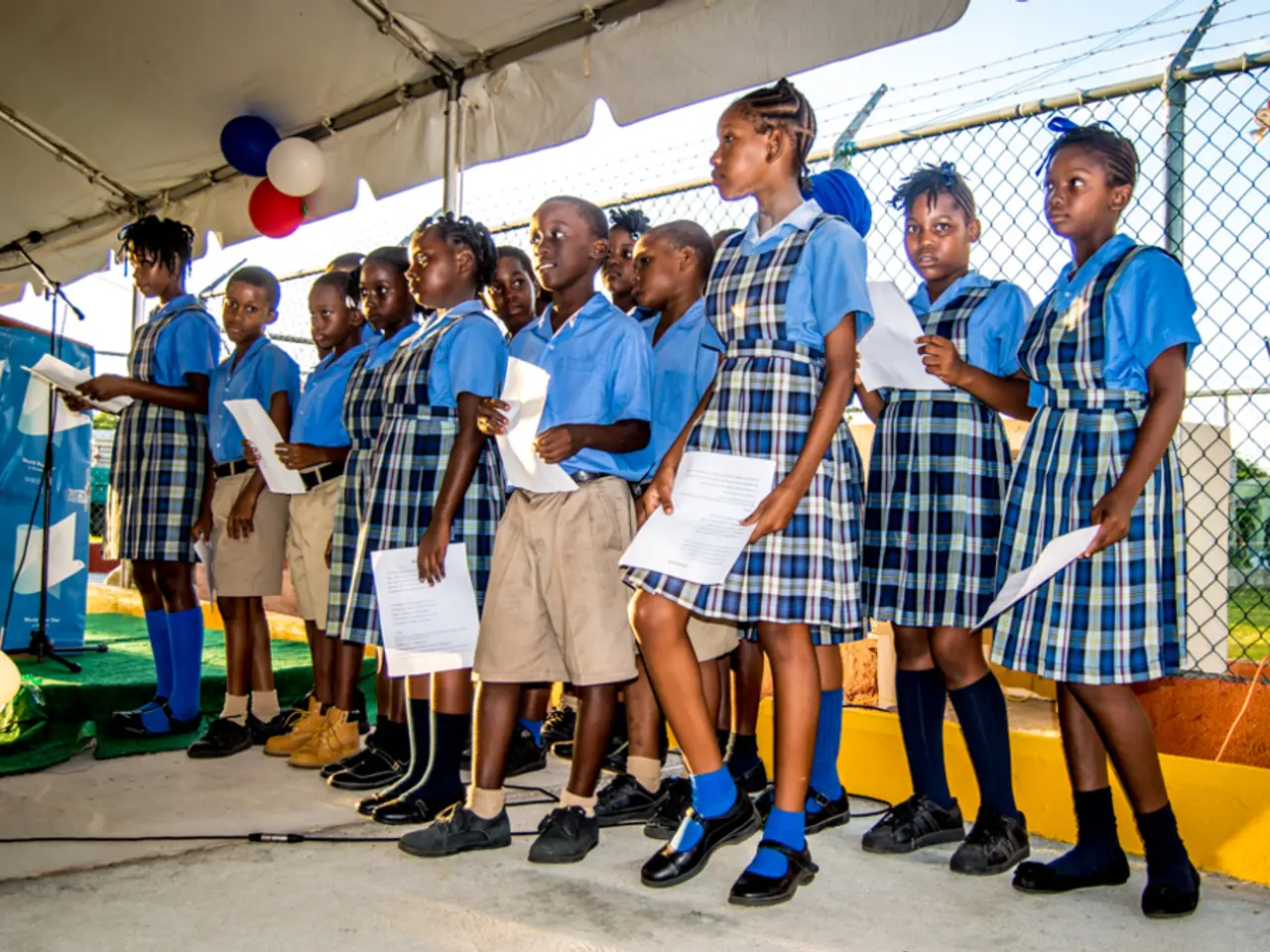High school debaters unite on their shared platform
The National Speech and Debate Tournament: A Pivotal Platform for Civil Discourse
The National Speech and Debate Tournament, held in Des Moines, Iowa for its 100th anniversary, has evolved into a significant educational institution that equips students with the skills necessary to navigate a polarized society. With over 7,000 middle and high school students participating, the tournament fosters critical thinking, respectful discourse, and understanding across diverse viewpoints.
One of the participants was Macon, a high school junior from Greenville, South Carolina, who prepared for the competition at Bob Jones Academy in Greenville. Macon's debate topic was on the justness of violent revolution in response to political oppression. However, despite his preparations, Macon's performance did not advance him to the next round.
The tournament's relevance is underscored by the increasing societal need for respectful discourse amid division. Debate formats, such as the National Speech and Debate Tournament, provide a platform for students to engage with complex social, political, and ethical issues through structured argumentation and public speaking. This contrasts with the often polarized and emotionally charged public discourse seen today.
The National Speech and Debate Association aims to double its membership in the next five years, but there is a lack of teachers willing to lead clubs. David Yastremski, an English teacher at Ridge High School in New Jersey, who has coached teams for about 30 years, shares this concern. He fears that the scrutiny educators are under may make it difficult to recruit more teachers to lead clubs.
Gagnado Diedhiou, a senior who just graduated from Eastside High School in Greenville, South Carolina, is the only Black teenager and the only student wearing a hijab competing in the Congressional Debate division of the National Speech and Debate Tournament. Meanwhile, Camille Fernandez, a rising junior at West Broward High School in Florida, has faced sexist remarks from opponents in debate competitions and is a member of a student-led group trying to bridge inequities in the clubs.
The tournament offers more than two dozen categories, including Original Oratory and Big Questions. In the Lincoln-Douglas Debate, a competition modeled after Abraham Lincoln and Sen. Stephen Douglas's debates in 1858, Callista and Macon Smith, a 17-year-old high school junior, met online this year to scrimmage. Callista described her debate style as aggressive and her voice as mean during the rounds, but she makes an effort to be friendly with her peers outside of the rounds.
Callista Martin, a 16-year-old rising senior from Bainbridge High School in Washington state, did not make the semifinals of the National Speech and Debate Tournament. Despite this, she values the experience and plans to travel this summer to meet with friends she has made at debate camps and tournaments.
In the tournament, two students have 40 minutes to set up their arguments, cross-examine each other, and sway the judges. For some students, like Callista and Macon, the tournament is not just about winning, but about learning, growing, and making connections.
Dennis Philbert, a coach from Central High School in Newark, New Jersey, fears for his profession due to the scrutiny educators are under. However, he believes that the debate club can reignite teachers' passion for teaching. Angad Singh, a student from Bellarmine College Preparatory in California, won the national prize in Original Oratory at the National Speech and Debate Tournament with a speech on his Sikh identity and the phrase "thoughts and prayers" commonly repeated by American leaders after a tragedy.
The National Speech and Debate Tournament continues to serve as a vital educational platform that encourages students to engage with complex issues, fostering skills essential for constructive public dialogue. Despite the challenges, the tournament remains a beacon of hope for fostering understanding and civility in a divided society.
- The National Speech and Debate Association's goal to double its membership in the next five years is faced with an issue of lack of teachers willing to lead clubs, shared by experienced coach David Yastremski.
- In the field of education and self-development, the National Speech and Debate Tournament offers various categories such as Original Oratory and Big Questions that help students learn, grow, and make connections, as experienced by Callista and Macon.
- The tournament's focus on innovation and fostering critical thinking is evident in the platforms it provides for students to address complex social, political, and ethical issues, like Camille Fernandez and Gagnado Diedhiou who are working on bridging inequities and promoting respectful discourse in the clubs.




